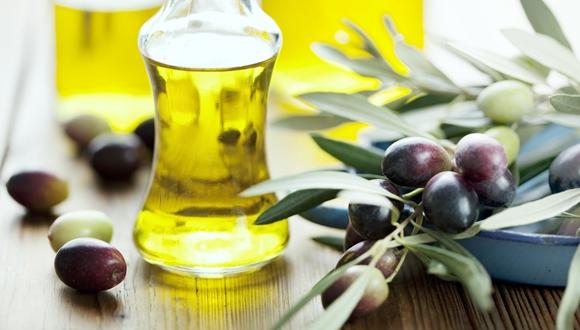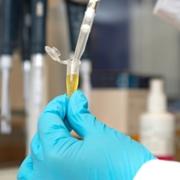The Green Line and the Equator: Local Fair Trade and the Olive Oil Sector
Student: Natalia Gutkowski
Advisors: Prof. Dan Rabinovich and Dr. Dafna DiSegni
Student: Natalia Gutkowski
Advisors: Prof. Dan Rabinovich and Dr. Dafna DiSegni
This research paper is about the Fair Trade movement in Israel and the West Bank, focusing on the Fair Trade olive oil sector as a case study. The research applied ethnographic fieldwork and economic research and conceptualization and was undertaken between 2008-2010.
The theoretical and methodological foundation of this work is based upon the Political Economy approach which highlights the relations between social units’ status and economic status, as well as the dependency between social units in development and underdevelopment processes.
This paper handles three research questions:
- It examines how the values and practices of the global Fair Trade movement are applied to the local reality and how environmental, political, economic and social aspects of locality are taken into account.
- It investigates the way in which the Fair Trade movement is institutionalized in Israel, focusing on the main agents in the field, namely social activists and business entrepreneurs. The dialectic move between the effects of political reality on the agents and their endeavors to create social change in face of this reality reveals the advantages and disadvantages of applying global activism forms to a local context that is greatly affected by the national conflict.
- It examines whether local Fair Trade has managed to contribute to sustainable development in the production of olive oil. This question is examined using the Environmental Kuzents Curve Hypothesis model.
One fundamental finding of this work is the core-periphery relationship in the local olive oil sector which is characterized by the marginalization of the Palestinian who is also a citizen of Israel. This is due to the difference between traditional, mainly Palestinian, and modern, primarily Jewish, forms of agriculture. Moreover, this can also be attributed to the historic policy of depriving Palestinians allocations of water and land resources in Israel. Furthermore, the occupation has placed the Palestinian producer from the West Bank in a double inferiority relationship with regard to the Jewish producer and the Palestinian citizen of Israel acting as the middleman. However, development trends in the olive oil sector in the West Bank, including Fair Trade, are beginning to affect this power relation and advantages are being created for the Palestinians of the West Bank.
Findings relating to the activity of the local fair Trade movement show that the local Fair Trade movement acts in response to the local political reality and not only the global market as is often the case with global Fair Trade movement. Israeli civil society movements have included Palestinian producers both from the West Bank and Israel in Fair Trade practices. This can be seen as an exceptional move in relation to Fair Trade practices when the conflict between these groups is taken into account. In the West Bank, one can identify the tension between business oriented Fair Trade and activists for Social change. However, Fair Trade in the West Bank is adopted by the Establishment.
I contend that the way in which Fair Trade is constructed in Israel's public sphere finds itself in a dialectic position, with the Israeli-Palestinian conflict and the occupation on the one hand and alternative globalization on the other hand. In this situation, the attempt to think about or implement Fair Trade in Israel places the social organizations and their activists in a position perceived by the typology of public discourse in Israel as political radicalism. The radical contestation is double: it challenges the common and widespread national capitalist ethic and the distinction of national identity as the basis of solidarity in Israeli “society”. In the West Bank, the attitude to Fair Trade is more cohesive and coherent. Fair Trade is perceived by Palestinian participants and the establishment as strengthening the national struggle, social solidarity and also with global consumers and activists.
Another finding of this work relates to the social environmental and economic development model that local Fair Trade offers. Fair Trade has brought environmental benefits, as well as economic growth processes for producers everywhere except in the management of olive press wastewater. Nevertheless, I contend that Fair Trade in the West Bank has created opportunities for grassroots democratization processes and has eventually brought to and enhanced a development process which is different from the hypothesis of the Environmental Kuzents’ curve. This is shown by the fact that at low income conditions, research is being undertaken to improve waste water management and a massive transfer to organic certification is being implemented. Although most Western development passed through a stage of industrialized agriculture and environmental deterioration before achieving sustainable agriculture practices, the Fair Trade scheme shows that a rise in polluting practices is an unnecessary step for economic growth.
This research indicates that even though olive oil wastewater is not as well managed as organic certification requires, massive certification of Palestinian producers has been undertaken. I argue that this failure is the consequence of the interface between Palestinian lack of national regulations and organic regulations. Since the policy regarding olive press wastewater management is determined locally, the Palestinian farmer has a comparative advantage compared to the Palestinian farmer from Israel who is subject to stronger environmental regulations on the path to achieving organic certification.
Therefore this research contributes to the ongoing debate over Fair Trade and to the research into sustainable development alternatives in the developing world.




